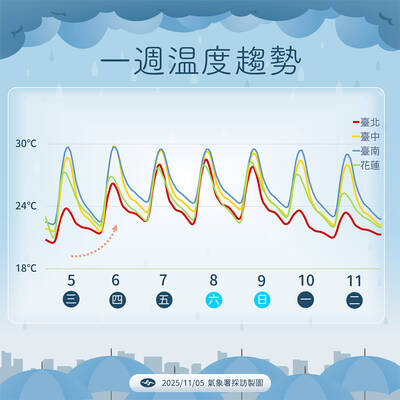The Executive Yuan yesterday announced that students at Ciaotou Elementary School’s Syucuo (許厝) branch are to be transferred to Fongrong Elementary School in Lunbei Township (崙背) to avoid further exposure to pollutants from Formosa Petrochemical Corp’s naphtha cracker in Yunlin County’s Mailiao Township (麥寮).
A three-year study conducted by the National Health Research Institutes (NHRI) found that thiodiglycolic acid (TdGA) levels in the urine — an indicator of carcinogen vinyl chloride monomer (VCM) exposure — of Syucuo students were significantly higher than students in other schools.
The finding was reported to Yunlin County’s Health Bureau and the Environmental Protection Administration (EPA) in June to decide whether the Syucuo branch, which is about 900m from the naphtha cracker, should be relocated.
During one of the three forums Premier Lin Chuan (林全) held with civic groups on the issue last week, National Taiwan University (NTU) public health professor Chan Chang-chuan (詹長權), who has conducted epidemiological studies near the cracker for several years, suggested that the government relocate students at the Syucuo branch to protect their health.
At the Health Promotion Administration yesterday, National Institute of Environmental Health Sciences Director Guo Yue-liang (郭育良) said the NHRI study showed that the urinary TdGA levels of Syucuo students who were moved to the main campus of Ciaotou Elementary School dropped by about 20 percent.
“The average urinary TdGA level was 173 micrograms per gram of creatinine [mcg/g-creatinine] when they were at the Syucuo branch, 900m from the cracker, but the average urinary TdGA level was 147mcg/g-creatinine after they were moved to the main campus, 5.5km from the cracker plant,” he said.
The students’ average urinary TdGA level further dropped to 35mcg/g-creatinine during the summer vacation, he said.
Kuo said a urinary TdGA level of more than 160mcg/g-creatinine can cause damage to liver functions.
NTU Hospital pediatrician Chang Luan-yin (張鑾英) said that since the study clearly showed that urinary TdGA levels in students dropped the farther they were from the cracker, the Syucuo branch should be relocated for the sake of the students.
Executive Yuan spokesman Tung Chen-yuan (童振源) said that Lin values Chan’s suggestion and as the Ministry of Health and Welfare’s specialists review had confirmed that environmental pollution posed a threat to students’ health, the government has decided to relocate the Syucuo students to Fongrong Elementary School.
Tung said that the Ministry of Education on Aug. 5 approved a budget of NT$872,000 (US$27,404) for Fongrong to expand and improve its school building and teaching facilities, with all work expected to be completed before school starts on Monday next week.
The Executive Yuan asks all related departments to assist the Yunlin County Government and engage in risk communication with the students, families and faculty, as well as continue to investigate the pollution source, monitor the environment and conduct epidemiological studies on health risks to sensitive groups, he added.

Three Taiwanese airlines have prohibited passengers from packing Bluetooth earbuds and their charger cases in checked luggage. EVA Air and Uni Air said that Bluetooth earbuds and charger cases are categorized as portable electronic devices, which should be switched off if they are placed in checked luggage based on international aviation safety regulations. They must not be in standby or sleep mode. However, as charging would continue when earbuds are placed in the charger cases, which would contravene international aviation regulations, their cases must be carried as hand luggage, they said. Tigerair Taiwan said that earbud charger cases are equipped

Foreign travelers entering Taiwan on a short layover via Taiwan Taoyuan International Airport are receiving NT$600 gift vouchers from yesterday, the Tourism Administration said, adding that it hopes the incentive would boost tourism consumption at the airport. The program, which allows travelers holding non-Taiwan passports who enter the country during a layover of up to 24 hours to claim a voucher, aims to promote attractions at the airport, the agency said in a statement on Friday. To participate, travelers must sign up on the campaign Web site, the agency said. They can then present their passport and boarding pass for their connecting international

UNILATERAL MOVES: Officials have raised concerns that Beijing could try to exert economic control over Kinmen in a key development plan next year The Civil Aviation Administration (CAA) yesterday said that China has so far failed to provide any information about a new airport expected to open next year that is less than 10km from a Taiwanese airport, raising flight safety concerns. Xiamen Xiangan International Airport is only about 3km at its closest point from the islands in Kinmen County — the scene of on-off fighting during the Cold War — and construction work can be seen and heard clearly from the Taiwan side. In a written statement sent to Reuters, the CAA said that airports close to each other need detailed advanced

UNKNOWN TRAJECTORY: The storm could move in four possible directions, with the fourth option considered the most threatening to Taiwan, meteorologist Lin De-en said A soon-to-be-formed tropical storm east of the Philippines could begin affecting Taiwan on Wednesday next week, the Central Weather Administration (CWA) said yesterday. The storm, to be named Fung-wong (鳳凰), is forecast to approach Taiwan on Tuesday next week and could begin affecting the weather in Taiwan on Wednesday, CWA forecaster Huang En-hung (黃恩鴻) said, adding that its impact might be amplified by the combined effect with the northeast monsoon. As of 2pm yesterday, the system’s center was 2,800km southeast of Oluanbi (鵝鑾鼻). It was moving northwest at 18kph. Meteorologist Lin De-en (林得恩) on Facebook yesterday wrote that the would-be storm is surrounded by